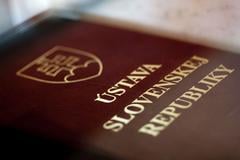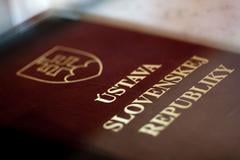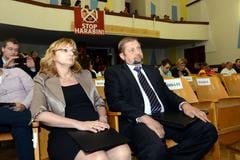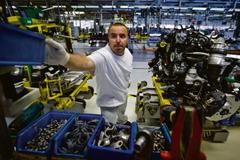- Cypriot recipes: Mahalepi (video included)
- Slovak folklore making a comeback: Unique diversity survived
- Is Slovakia a mafia state?
- Estonian recipes: Estonian potato salad (video included)
- Talking tourism, trade and tapas
- Slovakia is not a mafia state yet, but it is in danger
- Norwegian recipes: Reindeer filet/sirloin (video included)
- Bratislava’s embassy-backed events you don’t want to miss
- Ambulance hit by Russian drone goes on display in centre of Bratislava
- Slovakia mourns Pope Francis, a shepherd of hope and humility Photo
- Slovakia’s public finances remain in deep trouble
- What is Pope Francis’s message to the powerful?
- “Return not,” the ocean cried. But I returned for her
- Slovak Matters: A flirtatious Easter of water and whipping
- Confetti, chants and history: Hejková’s dream goodbye after nearly 40 years at the top
- Ambulance hit by Russian drone goes on display in centre of Bratislava
- Bratislava’s embassy-backed events you don’t want to miss
- Slovakia mourns Pope Francis, a shepherd of hope and humility Photo
- “Return not,” the ocean cried. But I returned for her
- Slovak Matters: A flirtatious Easter of water and whipping
- Slovakia’s public finances remain in deep trouble
- When to shop over Easter: Opening hours for supermarkets in Slovakia
- Danish shoemaker to shut Slovak factory, axing 650 jobs in fresh blow to struggling region
- Ambulance hit by Russian drone goes on display in centre of Bratislava
- “Return not,” the ocean cried. But I returned for her
- Bratislava’s embassy-backed events you don’t want to miss
- The British Film Institute shines a light on Slovak cinema’s boldest chapter Video
- 3 free things to do in Bratislava in the next seven days
- Slovakia's latest basketball star is destined for great things in the USA
- When to shop over Easter: Opening hours for supermarkets in Slovakia
- US giant pulls plug on Slovak factory, axing 137 jobs
- “Return not,” the ocean cried. But I returned for her
- Ambulance hit by Russian drone goes on display in centre of Bratislava
- German shoemaker Lowa joins wave of factory closures in Slovakia
- 3 free things to do in Bratislava in the next seven days
- US giant pulls plug on Slovak factory, axing 137 jobs
- When to shop over Easter: Opening hours for supermarkets in Slovakia
- Danish shoemaker to shut Slovak factory, axing 650 jobs in fresh blow to struggling region
- Hundreds of people ousted from Bratislava’s Volkswagen
- What is Pope Francis’s message to the powerful?
- Slovakia mourns Pope Francis, a shepherd of hope and humility Photo
- Confetti, chants and history: Hejková’s dream goodbye after nearly 40 years at the top
- Slovakia’s public finances remain in deep trouble
- Ambulance hit by Russian drone goes on display in centre of Bratislava
- Why this gorge deserves a spot on your bucket list Photo
- The British Film Institute shines a light on Slovak cinema’s boldest chapter Video
- Bratislava’s embassy-backed events you don’t want to miss More articles ›












